Early Life
Life as a farmer’s son wasn’t much to Ambrose Bierce’s tastes, but he did greatly benefit from the extensive library his father accumulated, which kindled his interest and admiration for the written word. This admiration would serve him well and later in his life he would go on to be a journalist, poet and short story writer.
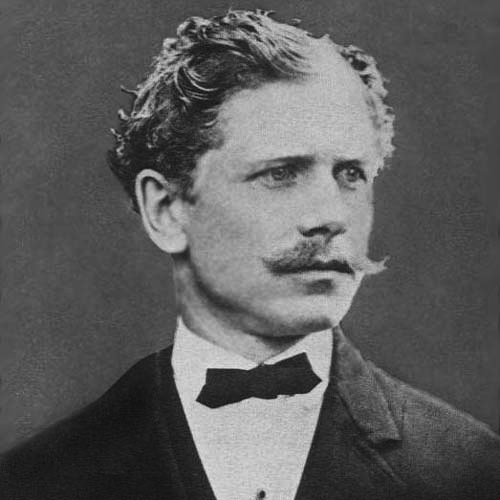
Ambrose Bierce – Wikipedia
Ambrose Gwinnett Bierce, born June 24th 1842 to humble beginnings, the tenth child of parents, Marcus Aurelius Bierce (1799-1876) and Laura Sherwood Bierce (1803-1878). The couple married 22nd February 1822 and made their modest home in a simple log cabin situated in Horse Cave Creek, Meigs County, Ohio. They had thirteen children in total, and interestingly each child was given a name beginning with the letter A. In order of birth, they were named Abigail, Amelia, Ann, Addison, Aurelius, Augustus, Almeda, Andrew, Albert, Ambrose, Arthur, Adelia and Aurelia.
His father attempted a range of unsuccessful pursuits in his life, from farming to shop keeping, but Ambrose never felt much admiration and never formed a close bond with either of his highly religious parents.
Instead, he found a role model in his paternal uncle, Lucius Bierce, a strong, intelligent and moral man, Ambrose sought to emulate his uncle in both his personal and professional life. From his uncle’s example he learnt to lead a moral existence and to speak out for his beliefs, however contrary they may be, this was a far cry from the conduct of many of his family members and their ancestors.
Heritage
The Bierce family’s ancestry traced back to the Great Puritan Migration in which English Puritans travelled to America in family groups, chiefly motivated by their quest for freedom to practise their Puritan religion far from the influence of Catholicism and the Stuart Kings. However, the liberty the Puritans sought was only for themselves and they strongly believed that it was deeply sinful to practice anything but Puritanism, and that everyone ought to be constrained to worship in the way they did because to practice otherwise would be servicing the devil.
Puritan ministers preached their rigid, nescient dogma with scant tolerance and respect for those outside of their religious community. Not one to shy away, Ambrose Bierce often wrote critically of “Puritan values” and the pettiness of those who “made a fuss” about genealogy, as the Puritans so often did.
Political
Age 15, Bierce left home to become a printer’s apprentice for ‘The Northern Indianan’, an anti-slavery paper. Bierce was a strong opponent of slavery, as was his uncle Lucius who, on the outbreak of the Civil War, organised and equipped two companies of marines to support the Union Army.

Ambrose Bierce – Wikipedia
The American Civil War, which began April 1861, was fuelled by the uncompromising differences between the free and slave states over the power of the national government to prohibit slavery in the territories that hadn’t yet become official states. The two sides, North and South, differed in many ways, economically the South relied on slave labour for the production of cash crops whilst the North economy was based on free labour with the banishment of slavery. The United States, Union Army ultimately triumphed over the Confederate States Army and proved essential to the preservation of the United States as a working, viable republic.
Life in the Military
In 1861, Bierce enlisted in the Ninth Indiana Infantry and remained a soldier supporting the Union Army for the duration of the American Civil War. The Union Army comprised the permanent regular US Army, but was greatly strengthened by the many temporary units of dedicated volunteers andconscripts.
The initial call-up was for just three months, after which many men, Bierce included, chose to reenlist for an extended duration. Ambrose Bierce proved himself to be a valuable soldier, eventually rising to the rank of Lieutenant. Considered to be an admirable soldier who fought in many notably bloody battles, whilst fighting at Murfreesboro in 1862 he saved the life of his commanding officer, Major Braden, by carrying the seriously wounded Major through the battlefield and away to safety.
He looked upon those who were cowardly in the face of battle with much distain and in June 1864, during a fierce battle, Bierce was wounded by a bullet which lodged in his skull behind his left ear, despite complications from this, most notably episodes of fainting and irritability, Bierce returned to service during September of the same year. He also trained and served as a topographical engineer, making maps of likely battlefields and became known amongst soldiers and many leading generals for his courage and dedication to duty.
He was discharged in 1865 after the Civil War, he then resumed his military career for a year in 1866, joining General Hazen in an expedition inspecting military outposts across the Great Plains, from Nebraska to California.
Personal Life
Around 1863, Bierce became engaged to Berniece Wright, a girlfriend from his youth when he used to delight her with satirical cartoons, and she enthralled him with her playful, flirtatious nature.
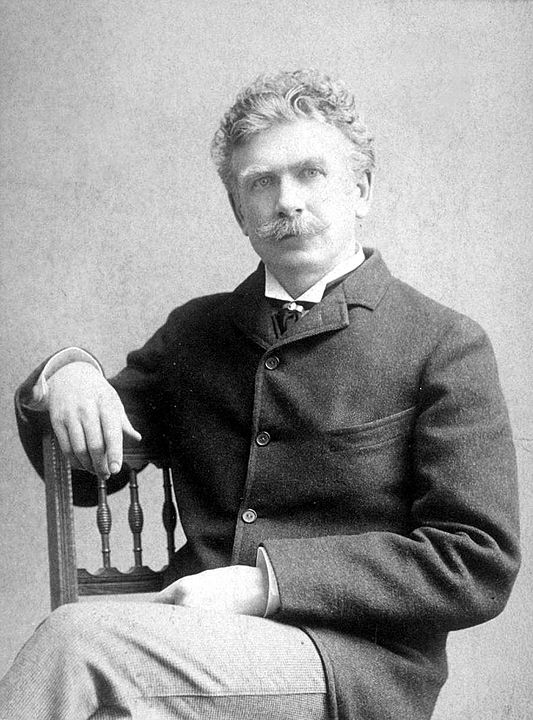
Ambrose Bierce – Wikipedia
However, after becoming a veteran officer, Bierce was ready to put childhood and flirting behind him, the bitterness of war had changed him and after returning to service he learned that his beloved had taken up with another, thus breaking their engagement.
Bierce never forgave her betrayal, or thought of women in the same way afterwards, and when women appeared later in his short stories they were invariably portrayed as seductresses, tantalising men into a madness curable only by death.
Bierce wed Mary (Mollie) Ellen Day, a wealthy miner’s daughter December 25th, 1871. The couple had two sons Day and Leigh and a daughter they named Helen. Their marriage was stormy, perhaps in part due to Bierce’s proclivity to overindulge with alcohol and being unafraid to voice his opinions and criticisms, the couple divorced in 1904 after Bierce discovered compromising letters sent to Mary from an admirer.
Mary died the next year, April 27th, 1905. Tragically, Bierce lost his two sons during his lifetime, Leigh passed away from pneumonia in 1901 and Day is rumoured to have committed suicide after the rejection of a romantic interest.
Literary Career
Following his resignation from the Union Army, Bierce began his literary career as a journalist in San Francisco. Then, in 1872, he moved with Mollie and his children to England to contribute to London magazines ‘Figaro’ and ‘Fun’.
In 1873 his first book was published under the pseudonym ‘Dod Grile’. The book was named ‘The Friends Delight’ and comprised a collection of his previous articles. He went on to become an associate editor and editor back in America and was a regular columnist for ‘The San Francisco Examiner’ which he was associated with until 1906.
Over the years Bierce emerged as a renowned journalist, editor and contributor and later, a revered poet and short story writer.
His short stories were predominantly based on horror, death and war and must have been strongly influence by his exposure to war, the tragic loss of two sons and a lifelong preoccupation with death and suicide. For at the age of sixteen he had apparently dreamed that God and all of mankind had perished and he saw his own decomposing corpse (this provided the inspiration for a short story later on in his life).
Final Days
In October of 1913, aged 71, Ambrose Bierce set out tour the American Civil War battlefields he had fought in, his military career was not something he would easily let go of. By December he saddled up and crossed the Rio Grande into the maw of the Mexican Revolution, despite not speaking any Spanish, he wrote that he was headed to Mexico to seek “the good, kind darkness” and September 10th that year wrote to his secretary, “I am going away to South America and have no idea when I shall return”.
He subsequently disappeared leaving only theories surrounding his vanishment. A thorough search for Bierce was ultimately postponed due to the breakout of World War One and no one knows with any certainty what became of him.
The Theories
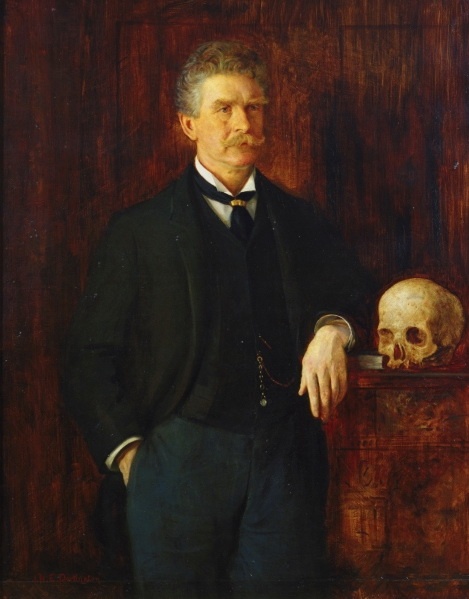
Ambrose Bierce – Wikipedia
There are many wild conspiracy theories as to what happened to Bierce, such as an assassination by a rival author or being taken captive by a tribe of Brazilian Indians.
His companion and secretary Carrie Christiansen reported of a letter sent by Bierce from Chihuahua city to a friend, the letter closed “As to me, I leave here tomorrow for an unknown destination”, Christiansen claimed the original letter had been destroyed, among others, which provoke sceptics to argue that there had been no letter and the trail was fabricated to conceal Bierce being committed to a sanitarium or having never entered Mexico, committing suicide at the Grand Canyon.
One rumour theorises that he may have been shot and died in battle at Ojinaga where his body would have been burned along with hundreds of others who perished whilst fighting, he reportedly informed his secretary that he was headed there to report on the battle. However, another story places him near the Rio Grande, a short while after the Ojinaga battle, having only been wounded now. A young federal aiming to cross over the river into the US spotted the incoherent man, supposedly Bierce and floated him across the shallows on a two wheeled car. The federal, believing travelling across with an American would play to his advantage, was instead swept up with the man and hundreds of other refugees and railroaded to Marfa for processing. The injured man, delirious and nearly comatose subsequently died and was buried without a marker at the Camp Marfa cemetery. A ‘trustworthy’ witness also posited that Ambrose was killed by suspicious government soldiers in the isolated mountain town of Sierra Mojada, having been suspected as a spy.
Regardless of the theory as to how Bierce met his end, what remains are the writings of one of the most powerful American writers of horror, who made his mark in all aspects of his endeavours.
In a final letter to his niece, Bierce wrote;
“Goodbye”
“If you hear of my being stood up against a Mexican stone wall and shot to rags, please know that I think that a pretty good way to depart this life.
It beats old age, disease, or falling down the cellar stairs.
To be a Gringo in Mexico – ah, that is euthanasia!”
Another great writer Emily Bronte and the brilliance of wondering heights
is recounted in the article linked here.
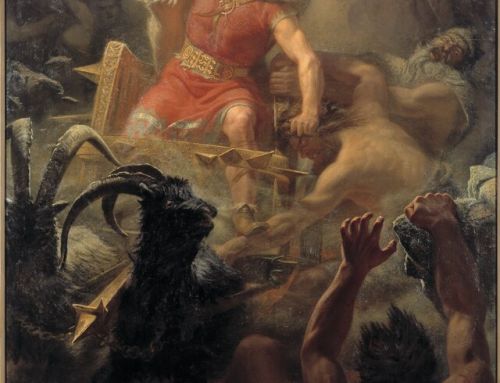

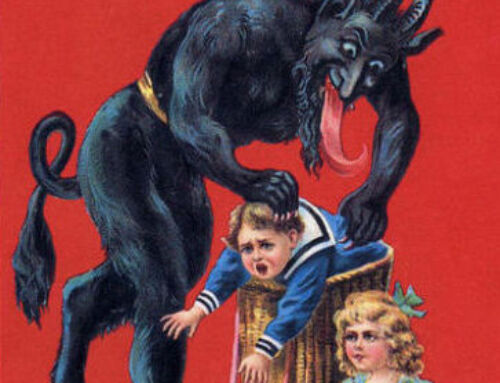
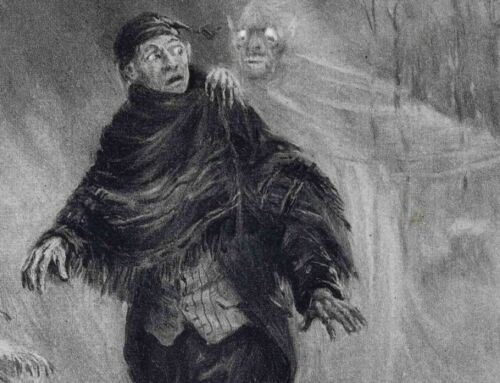

Leave A Comment